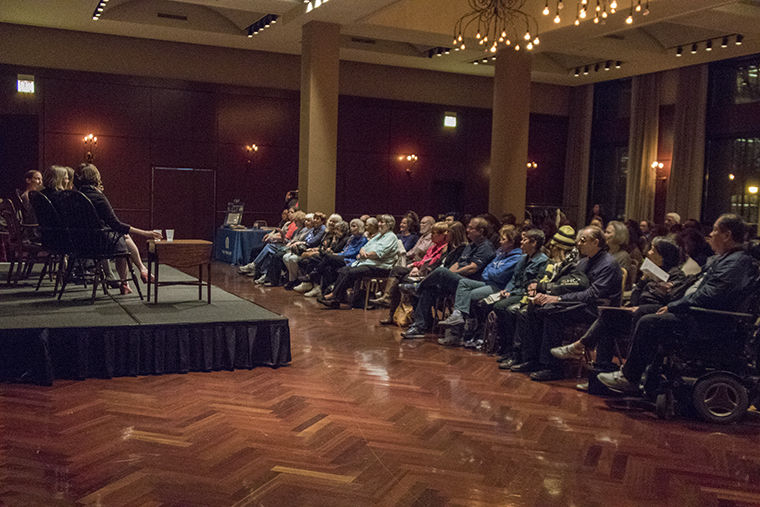Professors talk ‘What Comes Next?’ in ‘Hamilton’s’ impact
February 27, 2017
Gold Coast’s Newberry Library was bustling with a full crowd of all ages—some even arriving after the panel started—eager to hear a discussion about the hit musical “Hamilton’s” classroom influence.
The panel, hosted Feb. 21 at 60 W. Walton St., featured four Northwestern University professors who teach courses inspired by the musical. Geraldo Cadava and Cailtin Fitz co-teach “Hamilton’s America,” exploring the musical’s cultural impact on history as well as its accuracies and inaccuracies in Hamilton’s portrayal.
Professors Joanna Grisinger and Joanna Grisinger co-teach “Alexander Hamilton: Bullets, Banks and Broadway,” which examines legal issues in the musical such as cabinet meetings, litigation speeches, dueling culture and creating the constitution.
The hourlong conversation focused on how the musical can be a gateway to learning about race, class and other historical issues that are easier to approach in the wake of Lin-Manuel Miranda’s Broadway success.
“[The class] brings in students who might not be interested in legal studies per se, but [we can get at] a bunch of interdisciplinary topics through the musical,” Grisinger said.
Nielsen, also a research professor at the American Bar Foundation, said she and Grisinger used their love for “Hamilton” to assess America’s values, such as political representation, the voting system and slavery.
Fitz said teaching the class has brought unexpected challenges and opportunities. Because more students are enrolling in the class with a notion of history from the musical, Fitz said she has had to defend history and paint a more holistic picture not seen in “Hamilton.”
“[The] dynamic in the classroom [is] I feel like I am raining on everyone’s parade,” Fitz said. “They take this class because they are excited about ‘Hamilton,’ and then here I am trying to constantly complicate that story.”
While the frequent fact checking may be draining, she said it is also a great opportunity for starting a larger conversation about American history and exploring criticism of the musical’s accuracy in portraying race and slavery.
“The multiracial casting conceals that if they were white actors playing these founding fathers and their wives, it would be a really conservative story that defines politics and early American history very narrowly,” Fitz said.
Cadava said his mission focuses on Latin American history within the U.S. He said the class encourages students to think about decisions Miranda made to tell the story, like his choices of certain events to highlight through song and selection of themes that speak to Latinos’ place in history.
“Ultimately, the musical is a pretty optimistic representation of what is possible for immigrants and people of color in the United States—hard work, perseverance, ambition, and you too can become Secretary of the Treasury,” Cadava said, agreeing with the critical consensus that “Hamilton” reflects Obama’s America.
Local rapper Rajiv Nathan, who attended the panel and has seen “Hamilton” three times, said the event proved the musical’s relevance to using art to study history.
“The fact we have 100 people in this room wanting to learn about a college class—at a college we don’t even attend—is pretty fascinating,” Nathan said. “Entertainment seems to be the best gateway drug to education.”








